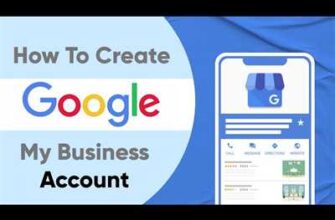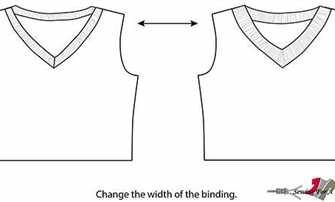
Are you looking to build a profitable online business but don’t know where to start? With the right strategy and using the best tools available, you can create a successful ecommerce store that generates sales and revenue.
One of the most important decisions you’ll need to make is choosing the right ecommerce platform. With so many options available, it can be overwhelming, but don’t worry! We’ve got you covered.
Using a drag-and-drop website builder with customizable templates, you can easily build your ecommerce store from scratch. No coding skills needed! You have full control over the design and functioning of your website.
When building an ecommerce store, there are many features to consider. For example, you should provide an easy-to-use interface for your customers, offer customization options for products, and have a fast page loading time to keep users engaged.
SEO optimization is also crucial for your ecommerce store. It helps your website rank higher in search engine results, driving more organic traffic and potential sales. By using AI tools and data analysis, you can find the best keywords and optimize your product listings.
Another important aspect you should consider is fulfillment. You want to ensure that your customers receive their products on time and in perfect condition. By partnering with reliable fulfillment sources, you can provide a seamless shopping experience for your customers.
Starting an e-commerce business may seem daunting, but with our tips and recommendations, you can get started on the right foot. We offer professionally designed templates, easy-to-use editors, and a wealth of resources to help you along the way.
Don’t spend another year just thinking about it. Commit to your idea and build your ecommerce store today. Start generating sales and profit in no time! The possibilities are endless, and we’re here to help you every step of the way.
AI Ecommerce Website Builder
Are you looking to start an ecommerce business but don’t have the technical skills or resources to build a website from scratch? Look no further! Our AI ecommerce website builder is here to help you get started quickly and easily.
With our AI ecommerce website builder, you can create a professional-looking online store without any coding or design experience. Our drag-and-drop interface allows you to customize your website and pages exactly how you want them, giving you full control over the look and feel of your online store.
One of the many advantages of using our AI ecommerce website builder is that it provides access to a wide range of features and customization options. You can choose from a variety of templates and themes, and easily add products, sales pages, and even blog posts to your site. Our builder also includes SEO tools to help your website rank higher in search results, driving more organic traffic to your online store.
When it comes to costs, our AI ecommerce website builder offers a cost-effective solution for businesses of all sizes. With our builder, you can save time and money by building your website without the need to hire a web developer or designer. You can also make updates and edits to your site on your own, without having to pay for ongoing maintenance or support.
One of the most frequently asked questions about AI ecommerce website builders is whether they offer the same level of customization as building a website from scratch. While it’s true that the customization options may be somewhat limited compared to coding by hand, our builder still provides a wide range of options to help you create a unique and custom online store.
Our AI ecommerce website builder also offers a faster time to market compared to building a website from scratch. With our builder, you can have your online store up and running in a matter of days or weeks, rather than months or even years.
Another advantage of using our AI ecommerce website builder is that it includes features specifically tailored for ecommerce businesses. You can easily integrate payment gateways, set up product fulfillment processes, and track inventory and sales data. Our builder also offers features to help with customer data management and marketing, making it easier for you to generate sales and grow your business.
So if you’re considering starting an ecommerce business, our AI ecommerce website builder should be your first choice. It offers the best of both worlds – the ease and convenience of drag-and-drop builders with the customization and features of a custom-built website. With our AI ecommerce website builder, you can have a professional and profitable online store up and running in no time.
AI features
Artificial Intelligence (AI) has become an integral part of ecommerce stores due to its ability to enhance various aspects of online businesses. By leveraging AI features, businesses can improve their sales, customer experience, and overall efficiency.
Frequently asked questions (FAQs) can be automated with AI chatbots, providing instant and accurate responses to customer queries. This not only saves time but also ensures that customers receive the information they need without any delay.
AI-powered product recommendation engines can analyze customer behavior and preferences to offer personalized suggestions. This helps businesses increase sales by exposing customers to relevant products while they navigate through the store.
While code editors can be used to customize websites, AI-powered builders offer an easier and faster way to build and customize ecommerce stores. With drag-and-drop features and pre-designed templates, businesses can easily choose a layout that suits their needs and then customize it without any coding knowledge.
AI features also include the generation of product descriptions and listing optimization. Using AI algorithms, businesses can automatically create engaging product descriptions and optimize them for maximum visibility in search engines. This improves the store’s SEO strategy and attracts more customers.
Another AI feature is data analysis and generation of insights. AI models can process large amounts of data and provide valuable insights into customer behavior, market trends, and sales patterns. This allows businesses to make data-driven decisions and adjust their strategies accordingly.
By using AI features, businesses can have more control over their ecommerce stores and customize them according to their unique needs. Unlike other builders that have limited customization options, AI-powered builders provide a custom and personalized experience for each business.
Considering the benefits and functionalities of AI, it is clear that businesses can build a professional and successful ecommerce store with much ease and faster by using AI features. AI not only saves time and costs but also provides businesses with access to advanced features and functionalities that traditional builders lack.
In conclusion, AI features offer numerous benefits for ecommerce businesses. From automating FAQs and product recommendations to providing data analysis and customization options, AI technology is revolutionizing the way online stores operate. By embracing AI, businesses can build a highly functional and successful online venture while fulfilling customer needs and staying ahead in the digital market.
Follow these tips and commit to professionally building your ecommerce store using AI features. With AI, you can take your business to the next level and provide an exceptional shopping experience for your customers!
| Build a website with AI | Customize your store without any coding |
| Automate FAQs with AI-powered chatbots | Optimize product listings for better SEO |
| Offer personalized product recommendations | Analyze customer data for insights |
Get started with AI and see how it can transform your ecommerce store and boost your business.
One Year SEO Strategy
When it comes to building an ecommerce store, one of the most important factors to consider is implementing an effective SEO strategy. SEO, or Search Engine Optimization, plays a crucial role in driving organic traffic to your website and ultimately increasing sales and profitability.
Here is a one-year SEO strategy that can help you optimize your ecommerce store and achieve long-term success:
1. Research and choose the best keywords: Start by conducting keyword research to identify the most relevant and high-performing keywords for your business. Use tools like Google Keyword Planner to find keywords with high search volumes and low competition.
2. Optimize your website: Make sure your website is designed and structured in a way that is search engine-friendly. Optimize meta tags, headings, alt tags, and URL structures to improve your website’s visibility to search engines.
3. Create valuable and compelling content: Regularly publish high-quality and informative content related to your products or services. This will not only attract more visitors to your website but also establish your brand as a thought leader in your industry.
4. Build high-quality backlinks: Backlinks play a crucial role in improving your website’s authority and search engine rankings. Focus on acquiring backlinks from reputable and relevant websites through guest blogging, influencer partnerships, and social media promotion.
5. Optimize product listings: Each product listing should be fully optimized with relevant keywords, detailed descriptions, and high-quality images. This will not only improve your search engine rankings but also provide a better user experience for potential customers.
6. Leverage social media and other digital marketing channels: Use social media platforms and other digital marketing channels to promote your ecommerce store and drive more traffic. Engage with your audience, share valuable content, and run targeted ads to reach a wider audience.
7. Monitor and analyze your SEO performance: Regularly track your website’s performance using tools like Google Analytics. Analyze important metrics like organic traffic, conversion rates, and bounce rates to identify areas for improvement and optimize your SEO strategy accordingly.
8. Stay up-to-date with industry trends and algorithm changes: SEO is an ever-evolving field, and it’s important to stay informed about the latest trends and algorithm updates. Stay connected with industry blogs, join forums, and attend webinars to stay ahead of the competition.
9. Consider paid advertising: While organic SEO is essential, paid advertising can help complement your SEO efforts and provide quicker results. Consider investing in platforms like Google Ads and social media advertising to boost your visibility and drive more targeted traffic.
10. Continuously optimize and improve your SEO strategy: SEO is an ongoing process, and it requires constant monitoring and optimization. Regularly analyze your SEO performance, make necessary adjustments, and experiment with new strategies to stay ahead in the competitive market.
By following this one-year SEO strategy, you can effectively optimize your ecommerce store, increase organic traffic, and achieve long-term success in the online market.
2 ways you can build an e-commerce website

When it comes to building an e-commerce website, there are a few different approaches you can take. In this section, we will explore two of the most popular methods for building your online store.
- Building from scratch: This method involves creating your e-commerce website using only HTML and CSS code. While this approach offers the most control over the design and functionality of your website, it requires more time and technical expertise. However, if you have the skills and resources, building your e-commerce website from scratch can provide a highly customizable and tailored solution for your business.
- Using an e-commerce platform: If you’re looking for a faster and easier way to get started with your e-commerce website, using an e-commerce platform can be a great option. These platforms provide a user-friendly interface and drag-and-drop page editors, allowing even those with little to no coding experience to create a professional-looking online store. Some of the best e-commerce platforms offer a wide range of features, such as inventory management, order fulfillment, and customer data access, to help you optimize your sales and offer a seamless shopping experience to your customers.
When choosing between building from scratch or using an e-commerce platform, there are a few factors to consider:
- Coding skills and time commitment: Building from scratch requires coding skills and a significant time commitment. If you’re a developer or have access to a team of developers, this approach can offer more control and customization. However, if you’re looking for a faster and easier solution, using an e-commerce platform may be the better choice.
- Costs and resources: Building from scratch may require additional resources and investments, such as hiring developers or purchasing software. On the other hand, using an e-commerce platform often has a monthly subscription fee, but it can also provide access to a range of resources, including customer support, hosting, and security.
- E-commerce features: Consider the specific features and functionalities you need for your e-commerce website. Some platforms offer more built-in features, such as inventory management and order fulfillment, while others may require you to integrate external services.
- Customization: If you have specific design and branding requirements, building from scratch allows for complete customization. However, many e-commerce platforms offer customizable templates and themes to help you achieve a unique and professional look without the need for extensive coding.
- SEO and marketing: Consider how each option supports your SEO and marketing efforts. Some e-commerce platforms provide built-in SEO tools and integrations with digital marketing channels, while building from scratch allows for full control over your SEO strategy.
Ultimately, the choice between building from scratch or using an e-commerce platform depends on your specific needs and resources. Both methods have their pros and cons, so take the time to evaluate your requirements and consider the long-term implications for your e-commerce business.
1 Building a site from scratch
When starting an e-commerce venture, one of the first steps is building a website. While there are many drag-and-drop website builders available, it is best to consider building a site from scratch to have more control over its customization and features.
Building a site from scratch allows you to create a professionally functioning online store that meets the specific needs of your business. Many website builders provide limited customization options, but by building your site from scratch, you can include all the features and functionality you require.
To begin building a site from scratch, you’ll need a clear strategy. Start by considering your target audience, the products or services you wish to sell, and the data sources you’ll need to access. This will help inform your design and development process.
When building a site from scratch, you can use coding languages such as HTML, CSS, and JavaScript to create the pages and customize the layout. This allows you to tailor the site to your specific business needs and ensure each page is designed to convert visitors into customers.
While building a site from scratch may require more time and effort compared to using drag-and-drop builders, it provides more control, customization, and flexibility. Additionally, it allows you to create a unique online presence that sets your business apart from other e-commerce sites.
If you don’t have experience with coding or prefer a faster solution, there are also AI-powered website builders available. These platforms provide pre-designed templates and easy customization options, allowing you to build a functional e-commerce site without spending hours writing code.
Once you have a clear strategy and have chosen the best platform or approach for building your site, you can start the development process. This includes setting up product listings, designing each page, and ensuring a seamless user experience. You should also consider implementing features that help generate traffic and engage customers, such as a blog or interactive elements.
Building a site from scratch provides you with the opportunity to create a unique digital storefront for your e-commerce business. Whether you choose to build it entirely on your own or use AI-powered platforms, the key is to have a website that is user-friendly, visually appealing, and optimized for conversions.
| Pros of Building a Site from Scratch | Cons of Using Drag-and-Drop Builders |
|
|
2 Building a store using an e-commerce platform/website builder
When it comes to building an ecommerce store, it’s important to present your products and services professionally. One of the most effective ways to achieve this is by using an e-commerce platform or website builder. This option allows you to create a fully functional online store from scratch without the need to code.
There are various e-commerce platforms and website builders you can choose from, each providing many tools and features to help you build and customize your store. Some popular options include Shopify, WooCommerce, BigCommerce, and Wix.
One of the advantages of using an e-commerce platform or website builder is the ability to find pre-built store templates. These templates come with everything you need, from product listing pages to checkout and payment processing. This saves you time and helps you get your business up and running quickly.
These platforms also provide customization options, allowing you to edit and customize the templates to fit your brand and business strategy. You can customize everything from the layout and design to the colors and fonts used on your store’s pages.
In addition to customization, e-commerce platforms and website builders offer various features to enhance the functionality of your store. These features include inventory management, order fulfillment, and customer support tools. Some platforms even provide AI-powered tools to help you optimize your sales and suggest products to customers based on their browsing history.
By using an e-commerce platform or website builder, you can save on costs compared to hiring a web developer or agency to build your store from scratch. These platforms often offer different pricing plans to accommodate businesses of all sizes, with some even offering a free plan with limited features.
Building a store using an e-commerce platform or website builder is a popular choice for businesses who want to get started in the world of online selling without needing extensive coding skills. It allows you to focus on your products and customers while the platform takes care of the technical aspects of running an online store.
Before diving into a specific e-commerce platform or website builder, consider your business needs and goals. Think about the number of products you plan to sell, the level of customization you require, and any specific features you need for your store. Different platforms have their own strengths and weaknesses, so it’s important to choose one that aligns with your business objectives.
In conclusion, building an ecommerce store using an e-commerce platform or website builder can help you create a professionally functioning online venture in a shorter period of time. It provides numerous features and customization options that can be tailored to your specific needs, all without the need for coding skills. So, whether you’re just starting out or looking to expand your digital presence, an e-commerce platform or website builder can be the solution you’re looking for.
Frequently Asked Questions
1. What is e-commerce?
E-commerce, or electronic commerce, is the buying and selling of goods and services over the internet. It involves online transactions and the exchange of information, products, and services between businesses and consumers.
2. Why should I consider e-commerce for my business?
There are several reasons why e-commerce can be beneficial for your business:
- Increased reach: With e-commerce, you can sell your products or services to customers all over the world, expanding your market beyond geographical limitations.
- 24/7 availability: An e-commerce store allows your business to stay open around the clock, providing customers with the convenience of making purchases at any time.
- Lower costs: E-commerce eliminates the need for a physical storefront, reducing expenses associated with rent, utilities, and maintenance.
- More sales channels: E-commerce enables you to sell through multiple platforms and marketplaces, reaching a wider audience and increasing your sales potential.
- Data generation and analysis: E-commerce platforms provide access to valuable customer data, allowing you to analyze customer behavior and preferences to improve your marketing strategies.
- Customization and personalization: E-commerce platforms offer features that allow you to customize your store to reflect your brand and provide a personalized shopping experience.
3. Can I build an e-commerce store from scratch without any coding skills?
Yes, you can build an e-commerce store without coding skills by using website builders or platforms that offer customizable templates and drag-and-drop editors. These tools provide pre-designed themes and functionalities, making it easier for you to create and customize a fully functioning website.
4. What are the pros and cons of using website builders for e-commerce?
Pros:
- Faster setup: Website builders offer pre-designed templates and drag-and-drop editors, allowing you to build your e-commerce store quickly.
- No coding skills needed: You don’t need to have coding knowledge to use website builders, making it accessible to users of all skill levels.
- Customization options: Website builders provide customization features that allow you to personalize your store according to your branding preferences.
- Access to support: Many website builders provide customer support to help you resolve any issues or answer any questions you may have.
Cons:
- Limited customization: While website builders offer customization options, they may have limitations compared to fully custom-coded websites.
- Dependency on the platform: When using a website builder, your store’s functionality and design are dependent on the platform’s features and updates.
- SEO limitations: Some website builders may have limited SEO capabilities, potentially affecting your store’s visibility in search engine rankings.
5. How can I choose the right e-commerce platform for my business?
When choosing an e-commerce platform, there are several factors to consider:
- Business size and needs: Assess your business requirements and determine the features and functionalities you need from an e-commerce platform.
- Budget: Consider the cost of the platform, including any transaction fees or additional charges for specific features.
- Scalability: Choose a platform that can accommodate your business’s growth and provide scalability options.
- Integration options: Check if the platform integrates with other tools and services you use, such as payment gateways, fulfillment centers, and marketing automation.
- User-friendliness: Evaluate the platform’s ease of use, as well as the availability of resources and support to help you navigate and manage your store.
6. How can e-commerce help me generate more sales?
E-commerce can help you generate more sales through various ways:
- Expanded reach: By selling online, you can reach customers from different locations and tap into new markets.
- Offering more products: E-commerce allows you to offer a wider range of products, increasing the chances of attracting customers and fulfilling their needs.
- Marketing opportunities: E-commerce platforms provide marketing tools and analytics to help you promote your products and target customers more effectively.
- Customer retention: E-commerce enables you to provide personalized experiences, loyalty programs, and follow-up emails to encourage repeat purchases.
- Streamlined processes: E-commerce platforms can automate tasks such as inventory management, order processing, and fulfillment, improving efficiency and customer satisfaction.
7. What are some tips for starting an e-commerce venture?
Here are some tips to help you get started with your e-commerce venture:
- Research the market: Understand your target audience, competition, and industry trends to form a solid foundation for your business.
- Choose the right products: Select products that have a market demand and align with your business goals and target audience’s preferences.
- Build a professional website: Invest in a visually appealing and user-friendly website that reflects your brand and provides a seamless shopping experience.
- Optimize for search engines: Implement SEO strategies to improve your website’s visibility and drive organic traffic.
- Utilize social media and digital marketing: Leverage social media platforms and digital marketing channels to reach and engage with your target audience.
- Provide excellent customer service: Prioritize customer satisfaction by offering reliable support, easy returns, and timely resolutions to any issues.
- Track and analyze data: Use analytics tools to measure your store’s performance, identify areas for improvement, and make data-driven decisions for growth.
8. Can e-commerce be profitable for small businesses?
Yes, e-commerce can be profitable for small businesses. By leveraging the benefits of e-commerce, small businesses can reduce overhead costs, reach a larger customer base, and compete with larger competitors on a level playing field. It provides an opportunity for small businesses to showcase their unique products or services and establish a niche in the market.
9. Are there any fulfillment options for e-commerce businesses?
Yes, there are several fulfillment options for e-commerce businesses:
- Self-fulfillment: You can handle the fulfillment process in-house, from storing inventory to packaging and shipping products.
- Third-party logistics (3PL): You can outsource your fulfillment to a 3PL provider who will handle warehousing, packaging, and shipping on your behalf.
- Dropshipping: This fulfillment model allows you to partner with suppliers who will directly ship products to customers, eliminating the need for inventory storage.
10. Can AI be used in e-commerce?
Yes, AI (Artificial Intelligence) can be used in e-commerce to enhance the customer experience, improve personalization, and optimize various processes. AI can be utilized for chatbots, recommendation engines, predictive analytics, inventory management, fraud detection, and more. It can help businesses automate tasks, provide personalized recommendations, and streamline operations for better efficiency and profitability.
11. How long does it take to build an e-commerce website?
The time required to build an e-commerce website can vary depending on various factors, such as the complexity of the website, customization requirements, and your familiarity with the platform or website builder. While some basic e-commerce websites can be created within a few hours or days using website builders, more complex and customized websites may take several weeks or even months to develop.
12. Are there any listing sites where I can sell my products?
Yes, there are several listing sites and marketplaces where you can sell your products, such as Amazon, eBay, Etsy, and Shopify. These platforms provide access to a large customer base and offer features and tools to help you manage your online store effectively. However, it’s important to research and choose the platforms that align with your business goals and target audience.
Keep in mind that the answers provided here are general and may vary depending on your specific business requirements and goals.









